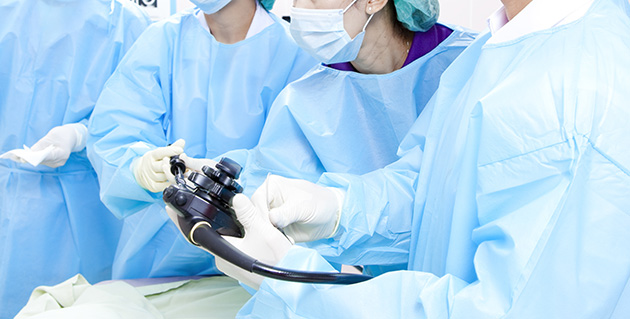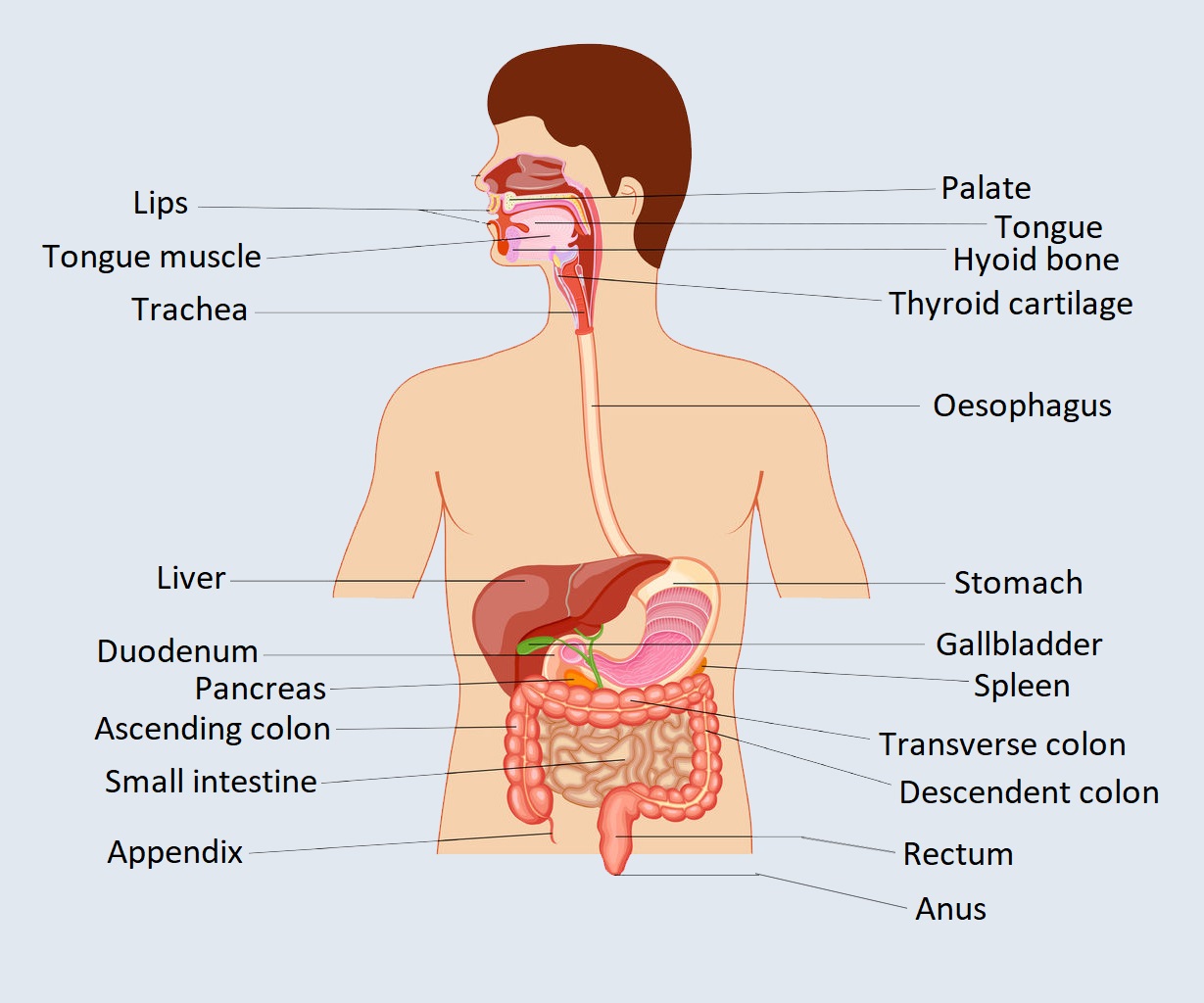Gastroenterology
Gastroenterology is a branch of internal medicine that specializes in the functioning and diseases of the oesophagus, gastrointestinal system, liver, bile, and pancreas.
Its name derives from a compound word of ancient Greek origin: the word gastro means stomach, entero means “belonging to the gut,” and logos means science.
With what symptoms is it worth visiting a gastroenterology clinic?
It is advisable to consult a gastroenterologist when our digestion changes. Consuming certain foods can cause intolerance or even an allergic reaction, which in addition to gastrointestinal symptoms, can also impair our quality of life. Moreover, the breakdown and absorption of ingested foods may be inadequate, and our digestion and bowel movements will change, which will also require a gastroenterological examination.

Complaints can often be traced back to mental causes. Our accelerated lifestyles and psychosomatic illnesses caused by stress can lead to abdominal complaints.
If the following symptoms persist, it is recommended to visit a gastroenterology clinic:
- abdominal discomfort, abdominal pain
- anorexia, weight loss
- pain or difficulty when swallowing
- when you feel like the bite you have taken is stuck
- nausea
- reflux complaint
- bloating
- heartburn
- frequently alternating stools
- constipation
- diarrhoea
- bloody stools
The primary goal of gastroenterological examinations is to detect diseases at an early stage for complete recovery. A good example of this is colon cancer, where symptoms are usually undetectable in the initial stages, so timely diagnosis is especially important. 90% of the tumours in this case develop from a polyp, which, if recognized at an early stage, could be removed by endoscopic intervention.
If the patient has recurrent or prolonged complaints, we recommend that you visit a gastroenterology clinic as soon as possible.
What diseases does gastroenterology deal with?
A gastroenterologist can help diagnose and treat the following diseases (gastrointestinal and related):
- food intolerance, food allergy
- irritable bowel syndrome
- oesophageal, gastric, and duodenal disorders (e.g. reflux, duodenal ulcer, gastric ulcer, heartburn, flatulence, gastritis)
- other gastrointestinal diseases (e.g. lactose or gluten sensitivity, dysbacteriosis)
- inflammatory bowel diseases (e.g. Chron’s disease, ulcerative colitis, diverticulosis, small intestine inflammation)
- cancers (octopus, colon cancer, small intestine cancer, stomach cancer)

The course of the gastroenterological examination
During the first consultation, the gastroenterologist will record the medical history: ask questions about previous illnesses, medications, and current complaints. They then perform a physical examination. The gastroenterologist examines the patient’s abdomen with a stethoscope and by palpation, and then explores the possible pain points and, if applicable, enlarged abdominal organs (liver, spleen).
After the primary examinations, the specialist will determine what further examinations will be needed.

What gastroenterological examinations are available at Medicover?
In our Clinics, the following examinations are available to make a diagnosis:
- Gastroscopy, Colonoscopy
- Abdominal and lesser pelvic ultrasound
- CT with contrast agent or abdominal MRI examination if necessary
- Liver function laboratory test
- Exhalation tests: Helicobacter pylori test, H2 exhalation test
- Irritable bowel syndrome laboratory test
- Food tolerance laboratory test (46 foods)
- Food allergy laboratory test (20 allergens)
- Laboratory testing for gluten-induced diseases
- Laboratory test for lactose and lactalbumin
- Stool analysis
What are the treatment options for gastroenterological problems?
After the diagnosis has been made, in most cases, the complaint can be alleviated or eliminated by medication and a change in diet and lifestyle. Some conditions can be treated with endoscopic intervention (e.g. polyp removal), but there are also cases (gallstones, tumours) where surgery is required for healing.
How is the digestive system structured?
The digestive system (apparatus digestorius) serves to absorb and process the energy needed for the functioning of the human body, which it produces from the absorbed nutrients and water. Our digestive system breaks down the food we eat into monomers (the smallest substances that can be used by the body) with the help of enzymes, which will provide the body with energy. The most important monomers required for energy production are amino acids, fatty acids, nucleotides and monosaccharides.
The human digestive system can be divided into 3 parts: anterior, middle and posterior intestines.
The foregut can be divided into 2 further sections: the first section is the oral cavity, which prepares the food by chopping for various enzymatic effects: This is where the breakdown of starch by the enzyme amylase in saliva begins. The second stage begins with the pharynx and then continues with the oesophagus, through which food enters the stomach. The stomach mixes, stores and pre-digests food. Additionally, it also has a protective function, as some of the incoming microorganisms are killed here.

The middle section includes the small intestine, where the majority of digestion and absorption takes place.
Digestion of food prepared by the stomach is carried out by digestive enzymes produced by the digestive glands (pancreas, liver) and intestinal fluid produced by the small intestinal mucosa. The absorption of nutrients is aided by intestinal villi on the surface of the small intestine, which multiply the nutrient-absorbing inner surface of the small intestine.
The roughage left after the digested food leaves the small intestine into the colon. This stage is already part of the posterior section. Digestion no longer occurs at this stage, only water, ions and some vitamins are absorbed through the wall of the colon. The colon transmits the remaining intestinal contents to the rectum, where it gradually turns into stool and leaves the body.

